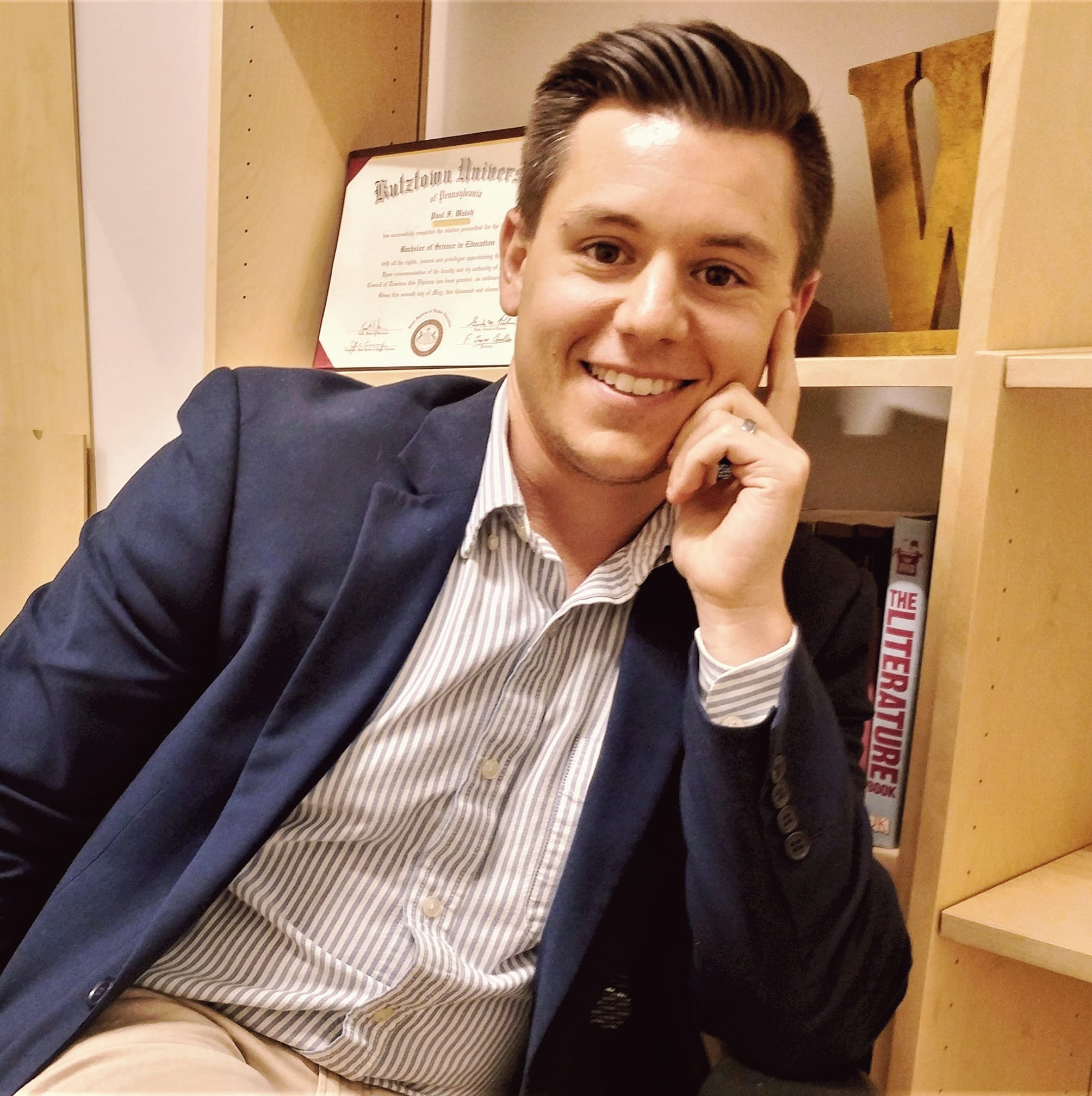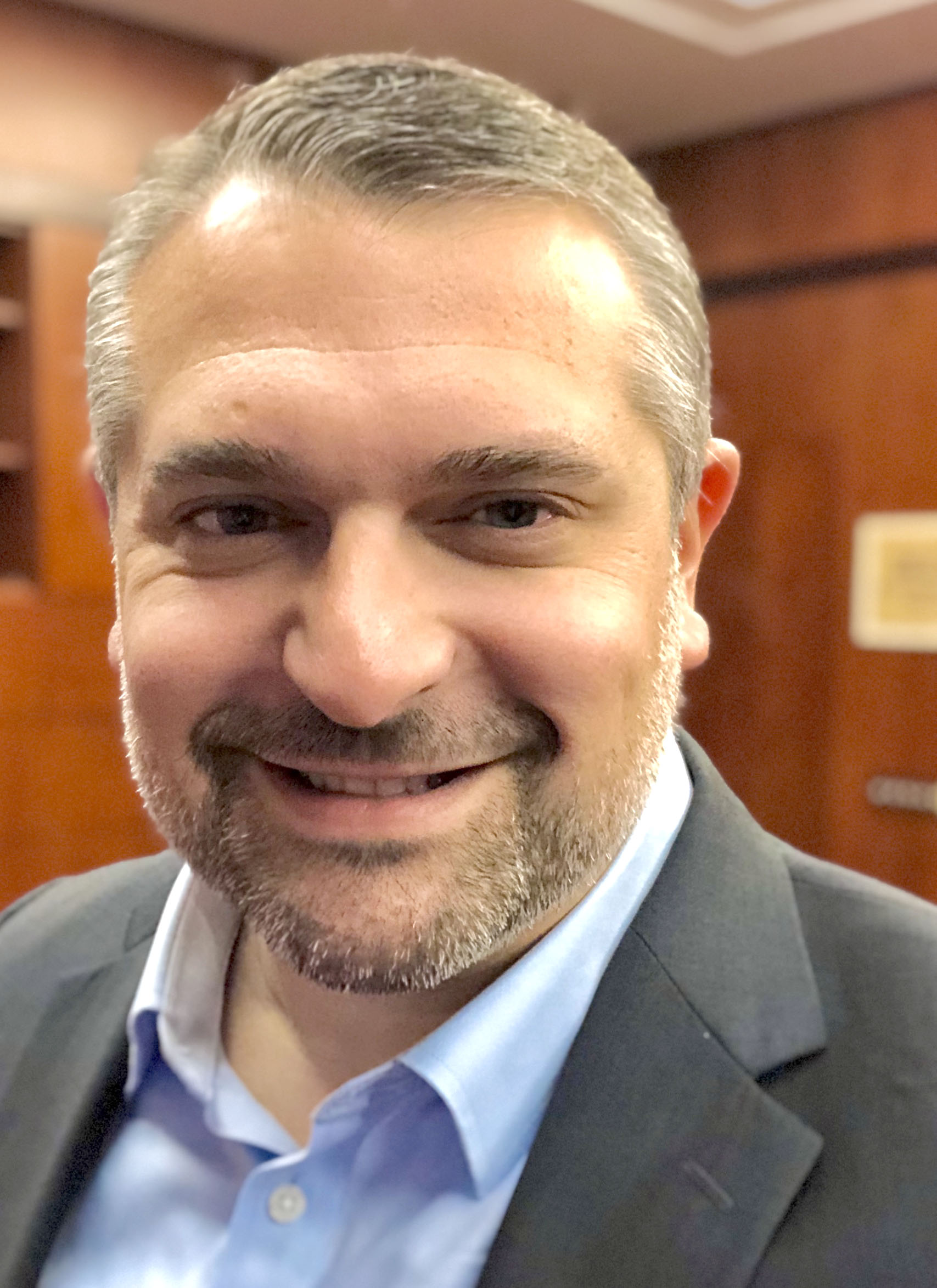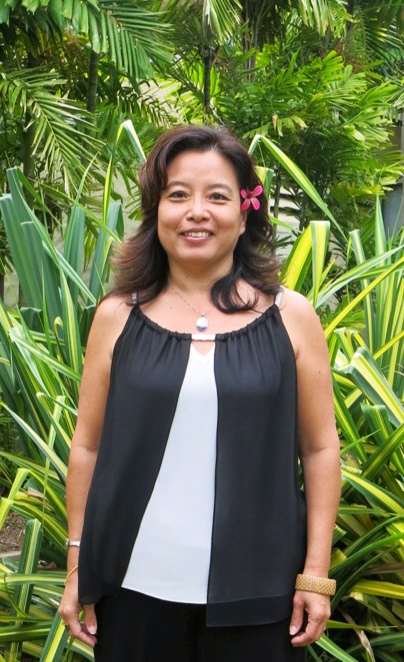The DisruptorsCPED graduates are disruptors who challenge the status quo. Dr. Paul Walsh
Current Role Dr. Walsh teaches English and Creative Writing at Liberty High School in Bethlehem PA and is an Adjunct Professor of Education at Lehigh University and Moravian University in Bethlehem, PA.
What was it about your EdD program that led you to become a disruptor?
My program at Kutztown challenged me to disrupt the concept of what is considered “normal” in education as a means to better create learning environments that serve all students.
What influenced you to pursue an EdD?
I knew I wanted to stay in the classroom both as a high school English teacher and as a professor tasked with training the next generation of educators. In this way, I wanted to find a program that was framed by a scholar-practioner model, someone who could both contribute research-based scholarship to the field and continue to hone his craft on the ground in the classroom.
What impact did your program have on your professional practice? What knowledge, skills, and/or dispositions did you gain to become a Scholarly Practitioner?
My program at Kutztown unveiled to me the intimate and intricate relationship between action research and teacher practice. My program taught me how to conduct thorough research in order to positively impact my pedagogy and the greater community of educational scholars.
What impact did your Dissertation in Practice have and on whom?
My dissertation directly impacted the two teachers in my study as they learned ways to strengthen their racial competency in order to better serve the diverse population of students they taught. Ultimately, this then impacted their students in a positive way as well. I have also adapted my dissertation as a book which will allow the work to impact a broader audience in the field of education.
How are you currently influencing the field of education?
I was a 2022-2023 Teach Plus Pennsylvania Policy Fellow where I worked to advance the mission of creating equitable educational policies in the state. As part of this fellowship, I co-authored a guide to implementing the Pennsylvania Culturally Relevant and Sustaining Competencies for teachers, administrators, and other district professionals. My academic work focuses on studying the way that storytelling and personal narrative writing can strengthen the racial competency of White teachers and students in order to create more inclusive educational spaces. As a result of this work, I have a book titled Building Racial Competency in White Educators through the Transformative Act of Writing: Writing through Whiteness, that will be published December 2023.
What would you tell a prospective EdD student?
If you are interested in getting the degree for your ego, you can probably find something cheaper and that requires less work to complete. However, if you are interested in learning the value of conducting research to better inform your practice, you want to transform the field of education for all students, and you want to be challenged to reinvent yourself as an educator throughout the course of your career, then an EdD is a great choice for you.
Dr. J.P. Matychak
J.P. is the host of the Growing Higher Ed Leaders podcast. Each episode features a conversation with leaders, practitioner-scholars, and administration experts in higher ed. Current Role Associate Dean, Student Experience & Services in the Boston University Questrom School of Business EdD Degree
What was it about your EdD program that led you to become a disruptor? Throughout my EdD program I was exposed to new approaches to think about complex problems. From student affairs practices to quality assurance to strategic planning, my instructors pushed all of us to ask tough questions and challenge the status quo. We were encouraged to take risks and embrace change. What influenced you to pursue an EdD? Early in my career I knew that it was a necessary step in my professional advancement within the field of higher education leadership. But, I quickly learned the EdD was more than a terminal degree and offered much more to my growth. The EdD provided me the domain knowledge and research skills to be an innovator and change agent, while also allowing me to contribute to the field as a scholar-practitioner. What impact did your program have on your professional practice? What knowledge, skills, and/or dispositions did you gain to become a Scholarly Practitioner? Frankly, the greatest skill I learned through my doctoral program was the power of inquiry. With every challenge I face in my daily work, I explore and analyze the situation from multiple angles. This helps to identify various solutions, as well as the upside and downside risks of each. I was able to hone the skill through my practitioner focused EdD program. What impact did your Dissertation in Practice have and on whom? Mine was not a dissertation in practice per se. However, I have been able to take much of what I learned about agile methodologies and adapt them to my work on various special projects in my current role. This has proved incredibly valuable in our current launch of our Online MBA program. How are you currently influencing the field of education?
I’ve been doing quite a bit of reflecting these days on my own career. I realized just how fortunate I have been to have had great leaders that have helped me grow as a leader in higher education. In addition, I have had the opportunity to see a variety of areas within an institution to help guide my functional role choices within the universities for which I have worked.
I recently started to mentor a few new administrators at our school. In those conversations I noticed just how narrow their perspective is regarding the opportunities available in higher education. This got me thinking, what resources do we have as new or continuing higher ed administrators to learn about roles on today’s college campuses and learn from leaders in those areas? Aside from joining any number of the professional organizations tied to a specific function (e.g., NASPA, NACADA, SCUP), there wasn’t a central space for this type of exploration and learning.
I wanted to fill that gap. That’s why I launched the Growing Higher Ed Leaders podcast. Each episode I talk with a new leader in higher education and we talk about their role on campus, and the leadership lessons learned. I’m hoping that this can grow to be a valuable resource for leaders in higher education. In the near future, I'm also hoping to showcase in special episodes, research being done by practitioner-scholars in various EdD programs and in their post-doctorate lives. I’m hoping to collect the various stories and develop a leadership in higher education book. What would you tell a prospective EdD student? Approach your EdD program with an open mind. Take the time to learn everything you can about your domain from your faculty and your fellow students. When it comes to the dissertation, keep it simple! Take it from me, there is great reward in keeping your dissertation topic tightly developed. I remember what an instructor of mine said many years ago, “the dissertation is your first great work.” Use it to lay the foundation of your great works to come. Dr. Mary Therese Perez Hattori
With an awareness of problems of practice at all levels of an educational system, this program offered a holistic and experiential approach to resolving such problems. It provided opportunities to gain skills and information which I could apply to analyzing, articulating, and addressing challenges in the field. About Mary Mary Therese Perez Hattori is Outreach Director, Centre for Pacific Island Studies. She earned her degree in Professional Educational Practice in 2014 at the University of Hawai’i at Mānoa. She was originally drawn to this degree/program because it was the next logical step in her career. She wanted a program that aligned with her Chamoru heritage and cultural beliefs regarding the importance of helping others and empowering students. With an awareness of problems of practice at all levels of an educational system, her program offered a holistic and experiential approach to resolving such problems. It provided opportunities to gain skills and information which she could apply to analyzing, articulating, and addressing challenges in the field. Her degree has helped her to more effectively advocate for culturally appropriate leadership development for Indigenous students. Dissertation Award CPED Dissertation in Practice Award Winner 2015 - E Hoʻoulu ʻIa Nā Kumu Mauli Ola Hawaiʻi: Preparing Hawaiian Cultural Identity Teachers Advice for Prospective EdD Students The decision to enter a doctoral program is a weighty one that will impose demands and impact many aspects of your daily life, especially if it is a full-time cohort program of limited duration. When pondering my decision to pursue this degree, I was led to this Castaneda quote: “Does this path have a heart? All paths are the same: they lead nowhere. They are paths going through the bush, or into the bush. In my own life I could say I have traversed long, long paths, but I am not anywhere. Does this path have a heart? If it does, the path is good; if it doesn't, it is of no use. Both paths lead nowhere; but one has a heart, the other doesn't. One makes for a joyful journey; as long as you follow it, you are one with it. The other will make you curse your life. One makes you strong; the other weakens you.” Having completed the program, this quote is even more apt. This program was as enriching as it was arduous; it is indeed a path with heart, a good path, a joyful journey that made me stronger personally and professionally. |



